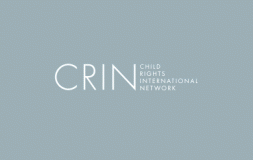Submitted by crinadmin on
See information about CHR sessions here: See info: http://www.ohchr.org/english/bodies/chr/previous-sessions.htm Background information: http://www.crin.org/CHR/session61.asp#304 The United Nations Commission on Human Rights (CHR) was the UN body in charge of elaborating international human rights standards and monitoring their implementation. It was composed of 53 States, and it met each year in regular session in March and April for six weeks in Geneva. Over 3,000 delegates from member and observer States and from non-governmental organisations used to participate. During those annual sessions, the CHR examined reports from special procedures (what are these?) and adopted over 100 Resolutions, decisions and Chairperson's statements on specific matters. It was assisted in this work by the Sub-Commission on the Promotion and Protection of Human Rights. The reform of the Commission The Resolution establishing the Human Rights Council provides the framework for a significant improvement in the work of promoting and protecting human rights worldwide: - A "universal periodic review" will ensure that all 191 Member States of the United Nations, starting with the members of the Council itself, will have their records examined in order to improve human rights conditions worldwide. All states must be held accountable for their shortcomings - The Council will hold more meetings throughout the year and for longer total duration than the Commission. It will also have a simplified and more efficient mechanism to convene special sessions to respond promptly to human rights crises. - As the Council is elected directly by the General Assembly, the new body reflects the high level of importance given to human rights as something belonging to all people and, alongside development and security, one of the three pillars of the United Nations. - Any Council member who commits gross and systematic violations of human rights can have their rights of membership suspended by a two-thirds majority of the General Assembly. - The first election of members to the Council on 9 May was the first indication that the new Council was not "business as usual". Countries competed for seats in an open and fair election and, for the first time ever, candidates put forward voluntary pledges and comments to promote and uphold human rights to which they will be held accountable.
The Commission has now become the UN Human Rights Council, see: http://www.ohchr.org/english/bodies/hrcouncil/

